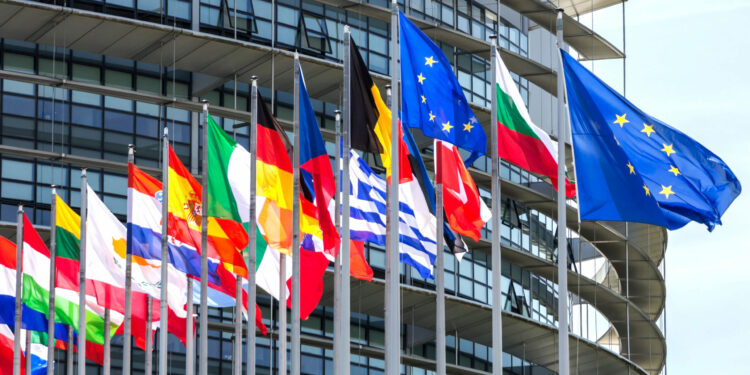Boarding my U.S.-bound plane once in Dublin, a stewardess cheerfully reminded the line of long faces that it’s never too early to plan next year’s vacation. The sentiment resonated more than the charitable stewardess knew. A cubicle beckoned. If I were going to seek truth, beauty, and goodness on my beloved Old Continent, the occasional weeklong vacation would be an inefficient route.
Since that time, I’ve been blessed with undeserved opportunities to live, work, and travel across Central Europe, so I feel compelled to challenge some of Roger Ream’s assertions in a piece last week in The American Conservative.
Mr. Ream describes a fantastic itinerary, one I’m sure we’d both recommend. Alas, too many visitors turn to establishment politico-journalistic narratives to make sense of what they experienced, and his analysis is guilty of this. It is a sort of “cubicle-ization” of regional knowledge consumption, and it plagues modern anglophone discourse.
Mr. Ream laments the region’s perceived political and economic maladies. He asserts that “‘democratic backsliding’ is actually most stark in Central and Eastern Europe” and cites a report from the Swedish V-Dem Institute arguing that Hungary and Serbia are “‘electoral autocracies’—places where elections are neither fair nor free.”
Neither the rhetoric nor the claims are novel. In an Atlantic piece before last year’s Polish parliamentary elections, the author Anne Applebaum (wife of then-opposition politician and current Minister of Foreign Affairs Radosław Sikorski) warned the contest would be “neither free nor fair.” After her side prevailed—and it wasn’t particularly close—Applebaum didn’t have to defend her status as an opinion-shaper on the region.
Likewise, in his recent book Goodbye, Eastern Europe, the author Jacob Mikanowski quips, “In several countries (Hungary, Belarus, Serbia), the state has effectively been captured by a single ruler or political party.” Categorizing the Carpathian neighbors—Mr. Ream’s chosen victims too—with Belarus is patently absurd, but such sentiments have the blessing of much of academia and corporate journalism.
And the V-Dem Institute that compiled Mr. Ream’s cited research? Its partners and financial sponsors include the European Commission, the World Bank, USAID, Facebook, and George Soros’s Open Society Foundation—a who’s who of transnational power brokers. Ostensibly objective institutions like V-Dem enjoy outsize influence in crafting regional opinions, but their output deserves the reception of, say, China Media Group’s reporting on the Middle Kingdom.
It’s a daunting struggle for any country that challenges transnational dogmas. The only real antidote is to spend time there—really, truly spend time there and absorb the realities of local life. The reality in Serbia is a big-tent ruling party that mostly defies ideological classification, something many Americans would find enviable at the moment—not to mention, very democratic. Its track record includes standard neoliberal economic reforms and a singular focus on EU accession (careful what you wish for, Serbs), pretty vanilla stuff among regional neighbors 20 years ago; its great sin is keeping open channels to China and Russia.
The latter holds true too in Hungary, where opposition activism isn’t just possible, but profitable. Earlier this year, the U.S. embassy announced funding for a number of left-wing opposition organizations. The Hungarian journalism expert Boris Kálnoky presents a media landscape that arguably leans pro-opposition, an assessment that should feel about right to a visitor scanning news racks or urban campaign signs. In my experience, Hungarians have grievances with over a decade of single-party rule, but they ultimately like the Fidesz party platform and distrust the chaotic and foreign-influenced opposition. Some traumatic, generation-defining political errors under the Socialists still matter. It’s a landscape far more reminiscent of Merkel-era Germany than anything that has happened in Belarus.
Subscribe Today
Get daily emails in your inbox
Incidentally, establishment political parties have ever more boldly dabbled in Minsk-style authoritarian tactics. The year-old Polish ruling coalition has shut down media, arrested political opponents, roughed up protesters, and disregarded presidential powers and inconvenient court rulings. In Slovakia, EU bullying flipped on almost immediately after a sovereigntist government replaced an unpopular technocratic one; Prime Minister Robert Fico even performed an early-summer trial run on surviving an assassination attempt for a friendly figure across the Atlantic. In these cases, air cover from media, political institutions, and NGOs is a matter of course.
Nor are these trends limited to Central and Eastern Europe. President Emmanuel Macron enlisted a rising left-wing coalition to stymie France’s most popular political party, then stifled his erstwhile allies’ attempts to form a government. Some analysts see no long-term resolution of the country’s most acute constitutional crisis in decades. In Austria, the nationalist, anti-migration FPÖ won last week’s elections, but establishment parties are likely to block it from government. In Germany, the establishment has formally initiated proceedings to ban the surging AfD (a topic I covered in TAC last year).
These political machinations are distinct from the economic headwinds Mr. Ream describes in his piece, but they are, of course, connected. Political dogmatism on environmental and energy issues has rekindled memories of recession and rationing. Mr. Ream is correct that Europe is uncompetitive, and that these burdens are largely self-inflicted, but he regrettably attributes these social ills to the wrong sources.
Source link : https://www.theamericanconservative.com/an-antidote-to-europes-summertime-blues/
Author :
Publish date : 2024-10-07 04:03:00
Copyright for syndicated content belongs to the linked Source.



